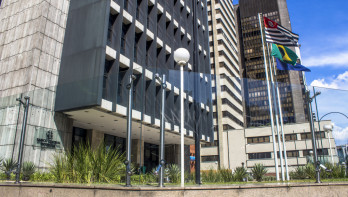Opinion Joost Derks
The Fragile Five now look much stronger
In the shadow of the Federal Reserve meeting, many other central banks are also making a decision on the policy rate. This is also happening in four of the Fragile Five, who are now in much better shape than over ten years ago.
Will it be 0.25 or 0.5 percentage points? Currency traders are counting the hours before Wednesday evening when it will be announced how much the US policy rate will be lowered. But there are many more interest rate decisions being made this week. From Brazil to Indonesia and from Turkey to South Africa. This quartet has more in common than you might think at first glance. Along with India, they were mentioned in the same breath in 2013 as members of the Fragile Five. This name was coined by Morgan Stanley analyst James Lord to refer to vulnerable countries with a high dependence on foreign investments and relatively low foreign currency reserves.
Turkish central bank charts its own course
That last point is still a weak spot in Turkey. The stock of foreign currencies dropped from over $100 billion ten years ago to less than $40 billion in the summer of 2020, before recovering somewhat. Under pressure from President Recep Tayyip Erdogan, the central bank kept the policy rate far too low for a long time. This kept inflation sky-high and the lira lost more than 90% of its value within ten years. The Turkish central bank now has more room to chart its own course. The policy rate has been raised from 8.5% to 50% in a year and a half. This rate is likely to remain unchanged on Thursday, before slightly decreasing in the fall.
Brazilian real could benefit from rising rates
In Brazil, the policy rate is expected to increase tomorrow. Shortly after the Brazilian central bank officially became independent in early 2021, the rate increased in twelve steps from 2% to almost 14%. Thanks to this decisive action, inflation in Brazil was brought under control much earlier than in the Western world. Moreover, the real stole the show on currency markets in 2022. A new tailwind may now be emerging, with the prospect of the Brazilian rate continuing to rise throughout 2024. At the same time, traders will be somewhat concerned about the rising budget deficit, which undermines the policy of the country's central bank.
Scaling back in South Africa
In South Africa, the policy rate may be slightly reduced tomorrow. Inflation has been within the 3% to 6% range targeted by the South African Reserve Bank for several months. As domestic spending stagnates and demand for commodities is affected by weak global economic growth, South Africa could benefit from the boost of a lower rate. Since interest rates in the Western world have already started to decline, the rate cut may not harm the rand. Especially since the South African currency took a step back in 2023.
Indonesian rupiah makes a comeback
In Indonesia - where the interest rate decision will be made tomorrow - much has also changed in the past decade. This year, the central bank has managed to bring inflation within the desired range of 1.5% to 3.5%. The focus has then shifted to the rupiah. The central bank prefers a slightly stronger currency, as cheap goods and services imports are a proven method to keep inflation in check. The rupiah rose significantly against the euro and dollar in August. But in other respects as well, the country is in a good position in terms of currency, with record reserves of over $150 billion. Indonesia symbolizes how the Fragile Five have shed their fragile image.

Joost Derks
© DCA Market Intelligence. Op deze marktinformatie berust auteursrecht. Het is niet toegestaan de inhoud te vermenigvuldigen, distribueren, verspreiden of tegen vergoeding beschikbaar te stellen aan derden, in welke vorm dan ook, zonder de uitdrukkelijke, schriftelijke, toestemming van DCA Market Intelligence.



